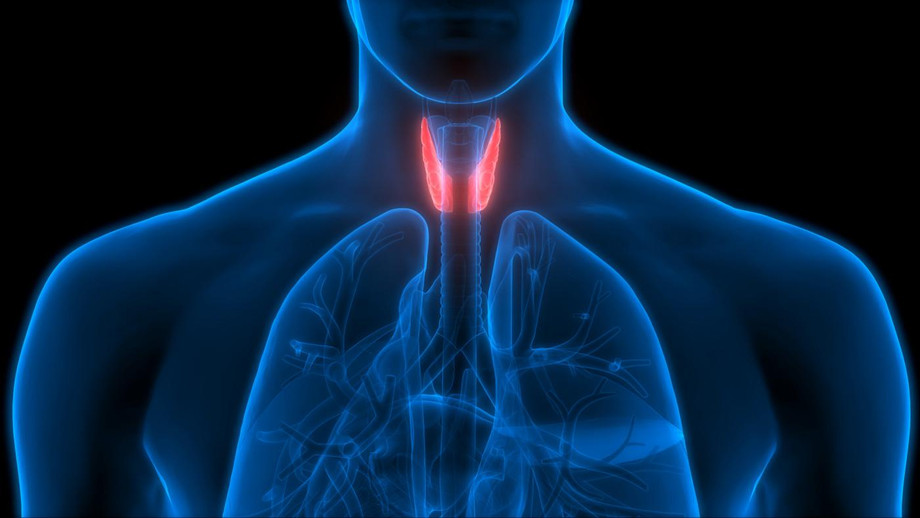What is Hypoparathyroidism?
Hypoparathyroidism is a rare endocrine disorder characterized by low or no parathyroid hormone levels in the body. The parathyroid glands are four small glands located behind the thyroid gland in the neck. They are responsible for regulating calcium and phosphate levels in the blood through secretion of parathyroid hormone (PTH). In this, the parathyroid glands are either underdeveloped or damaged, resulting in insufficient or no production of PTH.
Causes
This can be caused due to several reasons:
- Autoimmune disorder: The immune system mistakenly attacks and destroys the parathyroid glands. This is the most common cause of it.
- Genetic mutations: Certain genetic mutations can impair the development or function of the parathyroid glands, leading to it. Some examples include DiGeorge syndrome and autosomal dominant hypoparathyroidism.
- Iatrogenic: Surgeries in the neck region like thyroid surgery can inadvertently damage the parathyroid glands, resulting in it. Radiation therapy to the neck region also poses a risk.
- Metabolic disorders: Rarely, disorders affecting metabolism like Wilson's disease, hemochromatosis, and hypophosphatasia have been linked to it.
- Infiltrative diseases: Conditions involving deposition of abnormal substances in tissues like amyloidosis and hemochromatosis have been associated with it.
Symptoms
The main symptoms of it occur due to low calcium levels in the blood.
- Muscle spasms: Hypocalcemia causes muscles to become irritable and twitch involuntarily. This may involve facial muscles or generalized muscle spasms all over the body.
- Seizures: Low calcium levels in the blood can cause hypocalcemic seizure.
- Tingling or numbness: Hypocalcemia leads to tingling, itching, or numbness of the hands, feet, or around the mouth.
- Kidney problems: Prolonged hypocalcemia can cause issues like calcium deposits or nephrocalcinosis in the kidneys.
- Depression and confusion: Low calcium levels affects nerve conduction and brain functioning, leading to mood changes, depression, or cognitive decline.
- Abnormal EKG: Hypocalcemia shows up as an elongated QT interval on an electrocardiogram.
Complications of Hypoparathyroidism
If left untreated, chronic hypocalcemia due to it can result in complications like:
- Kidney dysfunction: Deposition of calcium crystals in the kidneys may impair their functioning over time.
- Eye problems: Corneal clouding or cataracts occur due to calcium deposits in the eyes.
- Renal osteodystrophy: Longstanding hypocalcemia leads to structural and metabolic bone abnormalities increasing risk of fractures.
- Mental health issues: Prolonged changes in brain function can manifest as memory impairment, psychosis, or dementia.
- Cardiac abnormalities: Low calcium levels can cause cardiac rhythm issues like prolonged QT syndrome.
Diagnosis
Diagnosis of it is based on evaluation of signs/symptoms and laboratory tests:
- Low serum calcium levels along with elevated phosphate levels in the blood indicate hypocalcemia.
- Very low or undetectable PTH levels in serum confirm the diagnosis.
- Additional tests like ultrasonography of neck or genetic testing help determine the underlying cause.
Treatment of Hypoparathyroidism
Treatment focuses on stabilizing calcium levels through:
- Calcium supplements: Calcium carbonate or calcium citrate supplements are used several times daily to maintain optimal calcium levels.
- Active Vitamin D supplements: Calcitriol supplements are given to enable intestinal absorption and renal reabsorption of calcium.
- Diet modifications: Diet should include food sources of calcium and vitamin D and limit phosphate intake.
- Monitoring: Periodic monitoring of calcium, phosphate, PTH and renal function is essential to ensure appropriate supplementation.
- Emergency treatment for hypocalcemia involves intravenous calcium, close monitoring and hospitalization.
- In rare cases, parathyroid tissue or hormone replacement through transplantation has been tried but more research is still needed.
Living with Hypoparathyroidism
People with it require lifelong treatment to control symptoms. Key aspects include:
- Strict adherence to calcium and active vitamin D supplements is crucial to avoid hypocalcemic complications.
- Monitoring dietary and supplemental calcium, vitamin D and phosphate intake is important under medical guidance.
- Early recognition and treatment of hypocalcemia symptoms prevents complications.
- Medication adjustment may be needed in situations like pregnancy or changes in diet or medications.
- Most can lead normal lives with proper treatment but avoiding risky activities during episodes of low calcium.
- Surgery requires extra calcium supplementation due to risk of hypocalcemia in perioperative period.
- Prompt medical care should be sought for any concerns regarding physical, neurological or psychiatric symptoms.
With careful long-term management of calcium homeostasis, people with hypoparathyroidism can have a good quality of life. However, sustaining optimal calcium levels remains a lifelong challenge facing both patients and caregivers. Future research aims to develop better treatment approaches through tissue transplantation, hormone therapy or gene therapy.
About Author:
Ravina Pandya, Content Writer, has a strong foothold in the market research industry. She specializes in writing well-researched articles from different industries, including food and beverages, information and technology, healthcare, chemical and materials, etc. (https://www.linkedin.com/in/ravina-pandya-1a3984191)
*Note:
1. Source: Coherent Market Insights, Public sources, Desk research
2. We have leveraged AI tools to mine information and compile it

